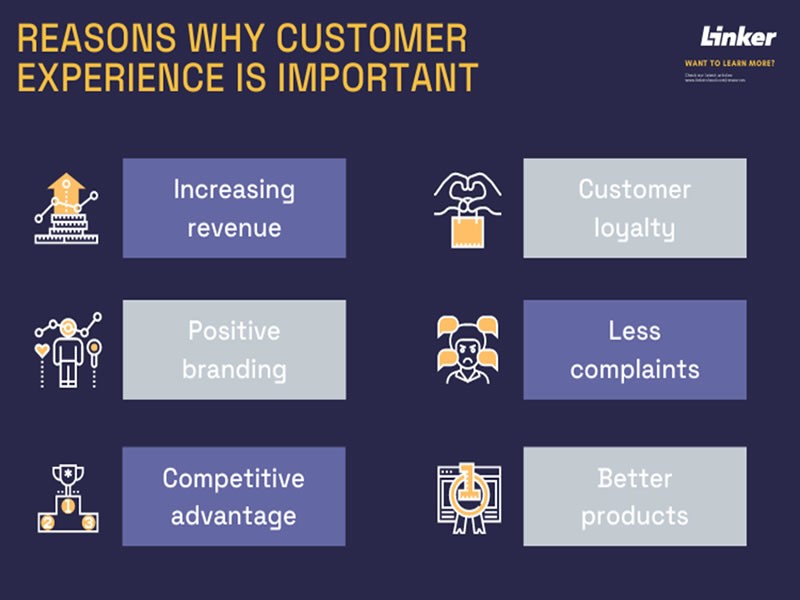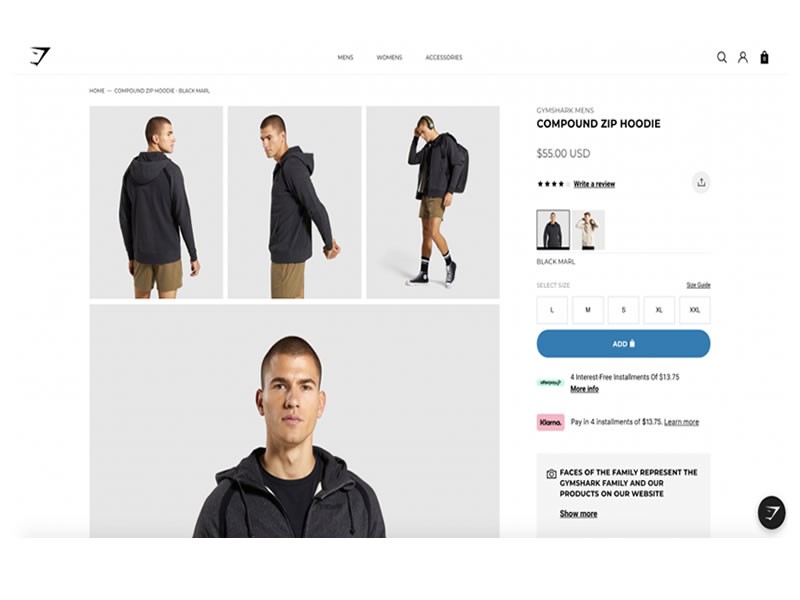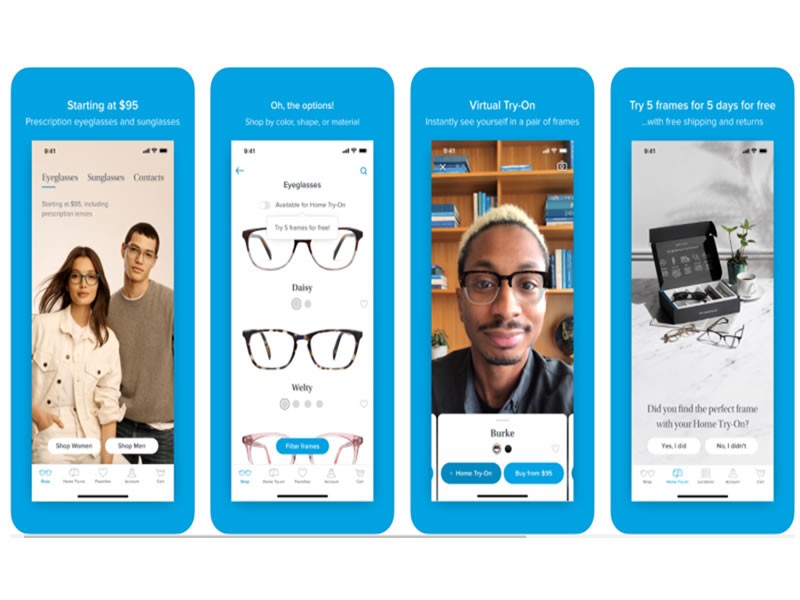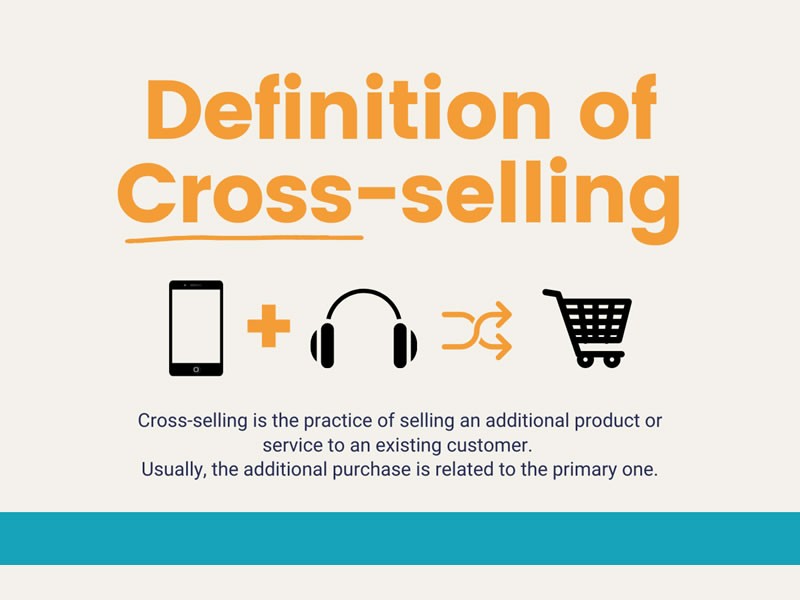Insight Blog
Agility’s perspectives on transforming the employee's experience throughout remote transformation using connected enterprise tools.
11 minutes reading time
(2208 words)
9 Design Tips To Improve Ecommerce Customer Experience
Designing a great eCommerce customer experience is essential if you want to provide an experience that’s of value to your customers, and invaluable when it comes to growing your sales
Customer experience is one of the most important things for any eCommerce business to consider.
You may have the best products in the world, but if you haven't made the customer's journey from interest to engagement as enjoyable and easy as possible, it's unlikely you'll be able to get your customers to the checkout point.
eCommerce business
A great customer experience encompasses every interaction a customer has with your brand and eCommerce business, from their first impression to their post-purchase reflection. The cumulative result of every touchpoint—navigating your website, engaging with customer service, or receiving their order—shapes their perception of your business.
Statistics underscore the critical role customer experience plays in eCommerce success. According to a PwC study, 73% of consumers say customer experience is a key factor in purchasing decisions. Moreover, a report by Salesforce reveals that 91% of customers are more likely to make repeat purchases from businesses that provide positive experiences. Conversely, 32% of customers would stop doing business with a brand they love after just one negative experience.
The customer experience begins with the first impression. A user-friendly website, clear product descriptions, and intuitive navigation can set a positive tone. Nearly 88% of online shoppers are less likely to return to a website after a poor user experience (UXCam), making optimizing your website for speed, mobile-friendliness, and ease of use critical.
Once a purchase is made, the post-purchase experience becomes equally important. Factors such as timely shipping, clear communication, and quality packaging contribute to the overall perception of your brand. Even small details, like personalized thank-you notes or follow-up emails, can leave a lasting impression.
Customer service is another essential component of the customer experience. Swift responses to inquiries, empathetic support, and effective issue resolution can turn potential complaints into loyalty-building opportunities.
Ultimately, a great customer experience is not just about meeting expectations—it's about exceeding them. By consistently delivering exceptional experiences, businesses can foster customer loyalty, increase lifetime value, and build a strong reputation in the competitive eCommerce landscape.
Reasons why customers experience is important
When it comes to today's customers, if they experience any difficulties during their browsing or purchasing process, you risk losing them and their purchase. In fact, a poor experience may be so damaging that they never return, or worse, encourage others to not deal with you in the first place.
When it comes to online shopping, your reputation is everything which is why it's so important to design a great eCommerce customer experience.
9 Design Tips To Improve Ecommerce Customer Experience
When you design a smooth and easy-to-use eCommerce platform, you guarantee a great customer experience. However, if you fail to use a proper platform that is easy to navigate, you will need eCommerce replatform to make sure the new platform provides excellent customer experiences. This means your clients feel happy which leads to increased customer loyalty, improved sales, and growth as a brand and company.
That's why it's so important to take every step possible to improve your customer's experiences with your brand.
1. Make sure every experience is personalized
There's more to personalization than just adding a customer's name in the subject line of your email marketing messages.
Designing an eCommerce platform that relates to the customer's wants and needs specifically can be incredibly effective at encouraging conversions. This might include offering Personalized Canvas Prints as a unique product option, allowing customers to create something truly meaningful and memorable.
Personalization can also be achieved by using software that makes recommendations based on previous or current sales, basing your offers on trends in the area, or even using a favorites list to remind them when something they like is on special.
Personalization in eCommerce is essential because it can drive impulse purchases, reduce returns, and even foster customer loyalty.
2. Design stunning, in-depth product pages
Your product pages are one of the most important parts of any eCommerce business. Without them, your customers would be perpetually shifting between, landing pages, about pages, and contact forms.
Great eCommerce businesses must have equally great product pages.
Great product pages are the equivalent of a friendly, informed, and effective salesperson in a regular shop. They entice, educate, and have the customer picturing themselves using the product.
Not only do they drive sales, but businesses with compelling product pages and in-depth details about their products can directly impact conversions by as much as 56%.
Here are some tips to help guide you during your product page design:
- Make use of descriptive titles
- Write unique and compulsive descriptions
- Include as many specific details as the customer may want to know
- Use clear and direct Call-to-Action buttons.
- Use high-resolution images
- Display shipping information clearly
- Display-related products as a way to cross-sell
- Show previous customer reviews
3.Make sure your platform is easy to navigate
Simple navigation menus that are clearly marked and accessible are one of the most important parts of any successful eCommerce business.
If your customers are struggling to move from page to page and orientate themselves, no matter how good your deals are, there's a good chance you'll lose them.
Remember that while traditionally navigation menus have resided at the top left or right of a page, with the growth of mobile internet users, that may not be the most effective position.
Instead, consider positioning your navigation buttons at the bottom of your screen.
The majority of people use their phones vertically, so having a closer navigation menu can be a subtle yet effective way to improve your customer's experience.
4.Embrace simplicity
While bright colors, captivating fonts, and engaging media are all essential to building a robust customer experience, it's important to remember that there's a time and place for them. A subtle use of icon fonts on your site can be an effective way to add personality without distracting from other elements or information.
Often, when it comes to the themes, interface, and design of your eCommerce business overall, "less" is still more.
Be sure to make use of minimalism design techniques and create a shopping experience that's as simplified as possible. Neat, clean design with effective use of white spaces, clear fonts, and simple navigation can be much more effective than any amount of pop-ups or widgets.
It can be a tough balancing act, but in an industry that's often oversaturated with images, pushy sales techniques, and the latest Web design trend, keeping it simple can go a long way.
5.Create an immersive experience
When your customers interact with your brand, it's important to leave with an experience they think about after that experience has happened. Creating great content that is visually appealing, creative, and engaging is key to that.
The more senses and feelings your content can make a customer feel, the better.
That's where rapidly developing technology like augmented reality can play a massive role in an innovative eCommerce business. Take Warby Parker's AR technology that lets you see how a pair of glasses will look on you before you buy them.
Not only is this a great way to avoid dealing with things like buyer's remorse, but it's also a great tool to help you bring the customer's digital experience to life.
While AR is one of the more modern solutions to help make an experience feel more three-dimensional, great copy, enticing, quality photos, and engaging videos can also play a major part in creating a more holistic experience for your customers.
Your website needs to have an impact on your potential customers to convert them to satisfied, actual ones. Designing a more immersive experience is vital when it comes to doing just that.
6. Attack abandoned carts
Cart abandonment is one of the most frustrating things any eCommerce business can experience.
Unfortunately, it's also one of the most prevalent scenarios eCommerce businesses can experience, with as many as 88% of online shopping carts abandoned worldwide.
Minimizing this loss is essential to running an effective eCommerce business and a large part of that is down to ensuring they have the best customer experience possible.
Clear, clean checkout forms can help you build customer trust. A penalty-free return policy can build long-term customer loyalty. Multiple payment options and easy-to-understand and use delivery/collection options also help your customers stick around.
This can be achieved by designing an experience with as few obstacles as possible for your customer by using an easy-to-create coding free form builder to create simple and easy-to-use order forms to ensure you never run out of stock for example.
Additionally, creative, visually appealing digital coupons or discounts can also help redirect customers to abandoned carts they had been looking at.
7. Embrace the art of the cross-sell
Cross-selling is one of the oldest and most effective sales techniques out there.
By recommending one product to match or go along with a product a customer is already looking at or has selected (see the comparison of cross-sell vs upsell), you automatically increase sales.
Studies show that this can increase your store's revenue by as much as 30%!
More than just increasing sales, you do it in a way that's not invasive or pushy. By actually adding value to the customer's interaction with your site while they shop, you inherently increase the value of their order.
A good way to incorporate cross-selling on your eCommerce site is to use pop-ups or notifications during the checkout phase, on product pages, or in follow-up emails where you thank the customer or promote your brand using email marketing. . Using real-time communication tools, such as Crisp's live chat and helpdesk app for Shopify stores, can assist you in comprehending your customers' needs, creating a relationship with them, and discovering potential opportunities for upselling.
8.Optimize for mobile
Having an eCommerce platform that's designed specifically to be viewed through a mobile browser is becoming increasingly important.
As of 2021, 90% of the global internet population will use mobile devices to go online. Additionally, mobile eCommerce sales are said to account for 54% of all eCommerce sales.
That's a major market that your eCommerce site needs to look at appealing to specifically. Things like making sure your forms are autofill-enabled on Android and Chrome to save a user from unnecessary effort can go a long way.
So making sure you have a fast-loading website is also essential to ensuring your mobile customers have a great experience when they browse your site. Research from Google showed that 53% of visitors to a mobile page will leave if it takes more than 3 seconds to load. That can have a direct and catastrophic effect on your conversion rates, which is ultimately what eCommerce is all about.
Optimal conversion rates occur when pages have load times of between 0 and 2 seconds. More notably, for every second of additional load time between 0 to 9 seconds, conversion rates can drop by 4.42% and 2.11% on average.
9.Simplify the checkout process
The final step of your customer's experiences while using your eCommerce site should be the simplest, easiest part of their process.
Additionally, you want to offer as many secure payment options as possible. Your customers shouldn't have to go out of their way to register or set up some new payment system just to purchase your product. Often, when faced with mountains of red tape or sign-up pages before a checkout, customers will look at competitors who offer a simpler process.
Simplified checkout processes are vital to getting customers to complete their current purchases and even have them coming back in the future.
Final Thoughts
Simply put, getting your customer experience right is just as important as making sure you reach them or that you have the right products to offer them.
If you want to build an eCommerce brand and business that not only competes in today's fast-paced and competitive digital world but thrives, you need to take every step possible to stand out. Proving easy, frictionless customer experiences is essential to doing that.
Customers who experience great service on a platform that's easy to understand and use, our customers that are going to rely on you in the future.
That's the foundation of any great business, eCommerce based or otherwise.
Author Bio:
Ryan Fick is a Cape Town-based, internationally raised, opinionated writer who is passionate about politics, social justice and a firm believer in the link between "Amandla" and "Awethu". With a background in Journalism, Travel, and all-round Content Writing - as well as a burgeoning interest in all things SEO - he is a perpetual knowledge seeker who knows enough to know he doesn't know it all.
Categories
Blog
(2620)
Business Management
(323)
Employee Engagement
(212)
Digital Transformation
(175)
Growth
(119)
Intranets
(116)
Remote Work
(61)
Sales
(48)
Collaboration
(36)
Project management
(29)
Culture
(28)
Customer Experience
(26)
Knowledge Management
(21)
Leadership
(20)
Comparisons
(6)
News
(1)
Ready to learn more? 👍
One platform to optimize, manage and track all of your teams. Your new digital workplace is a click away. 🚀
Free for 14 days, no credit card required.














![What Is an Intranet for Business? [2026 Guide] What Is an Intranet for Business? [2026 Guide]](http://agilityportal.io/images/easyblog_articles/1496/b2ap3_thumbnail_What-Is-an-Intranet-for-Business.png)



